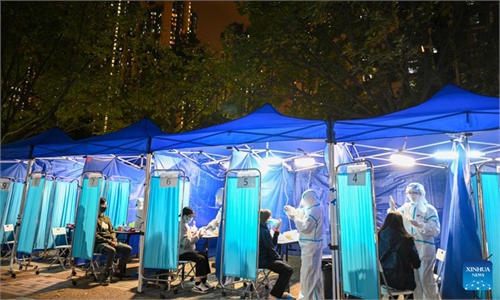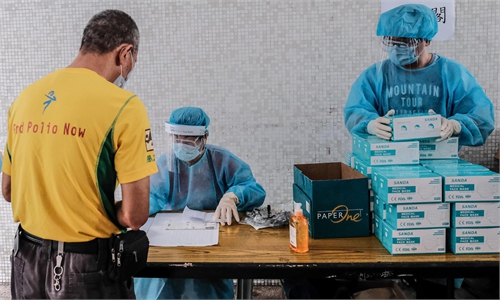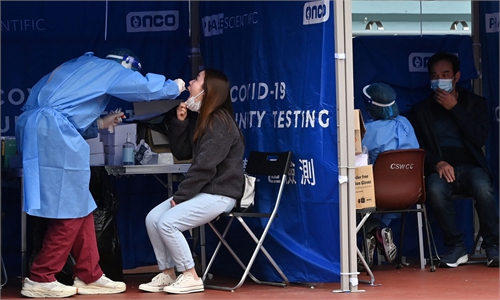HK seeks aid from Shenzhen amid COVID surge, ‘citywide lockdown not feasible’ for SAR
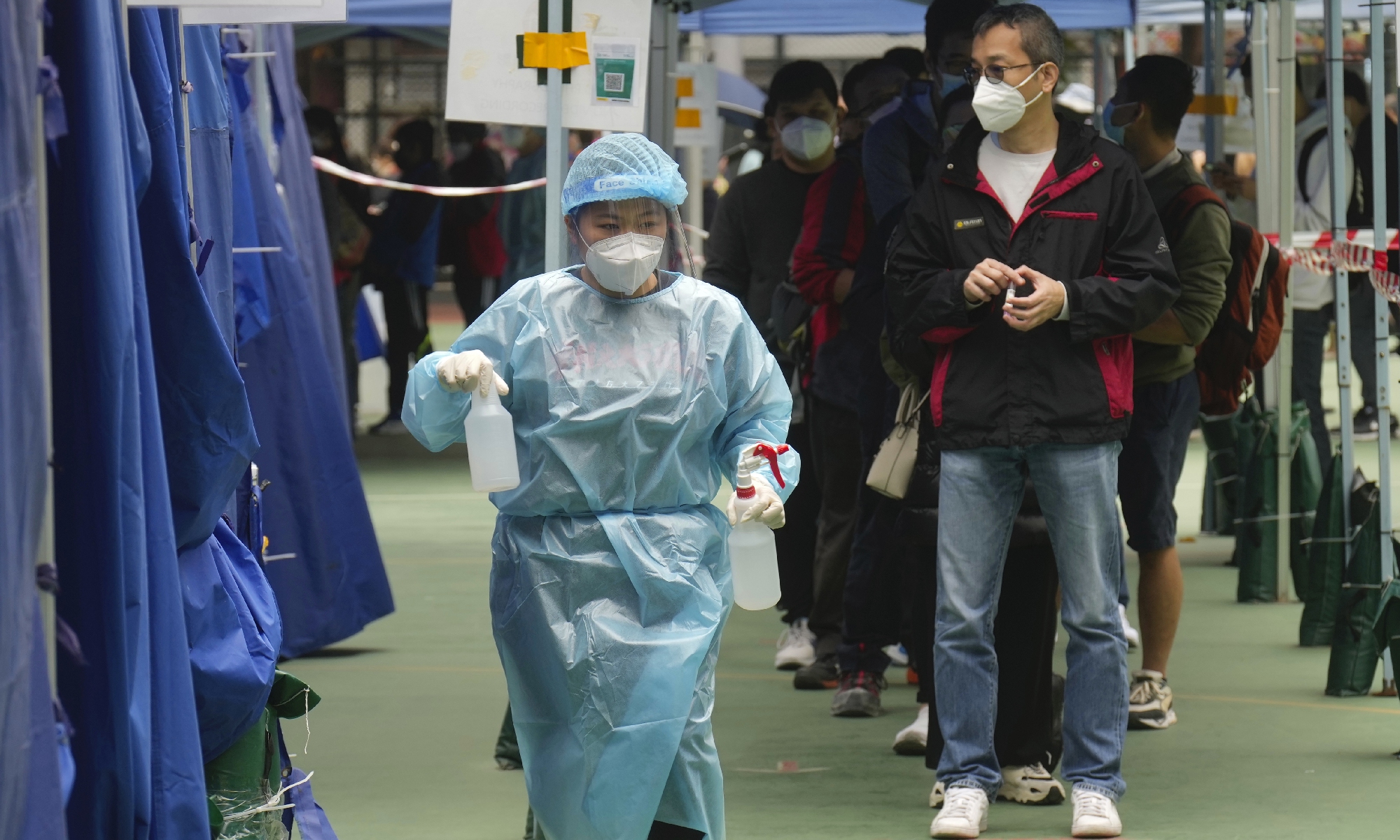
Photo:VCG
Under the strain of the epidemic, the Hong Kong Special Administrative Region (HKSAR) is urgently seeking help from the mainland, which experts said could provide support to Hong Kong in expanding nucleic acid testing and building fangcang makeshift hospitals to rapidly screen out infected cases and quarantine them, which is the most efficient way to curb transmissions.
HKSAR announced on Friday that SAR Chief Secretary John Lee led representatives of the region to Shenzhen in South China's Guangdong Province to attend the second Mainland-Hong Kong thematic meeting on the COVID-19 epidemic on Saturday.
The delegation will exchange views on the current epidemic situation in Hong Kong with representatives and experts of the Hong Kong and Macao Affairs Office of the State Council, the National Health Commission, the Disease Prevention and Control Bureau, and the governments of Guangdong and Shenzhen.
They will also discuss and exchange views on the mainland's support measures for Hong Kong's fight against the epidemic and the assurance of the supply of goods from the mainland.
The HKSAR on Friday reported 1,325 new confirmed cases discovered the day before, among which 1,323 were locally transmitted cases. Another 1,500 cases also tested positive. Since December 31, 2021, there have been 5,535 confirmed cases in this round's outbreak in the city, engulfing the city's medical system.
Jin Dongyan, a professor at the School of Biomedical Sciences at the University of Hong Kong, told the Global Times on Friday what Hong Kong needs the most from the mainland is fresh daily food like meat and vegetables.
The mainland can also provide Hong Kong with more nucleic acid testing kits and help the city build fangcang makeshift hospitals to rapidly screen infected cases and quarantine them to curb transmissions, experts said.
The Hong Kong and Macao Affairs Office of the State Council spokesperson said on Thursday that the central government will continue supporting the HKSAR government's zero-tolerance target and policy, firmly support the city in difficult times, and provide the help the city needs.
The first batch of a supporting team of medical staff from Guangdong had been sent to Hong Kong to help the city conduct mass testing. The HKSAR government also ordered millions of fast testing kits from the mainland.
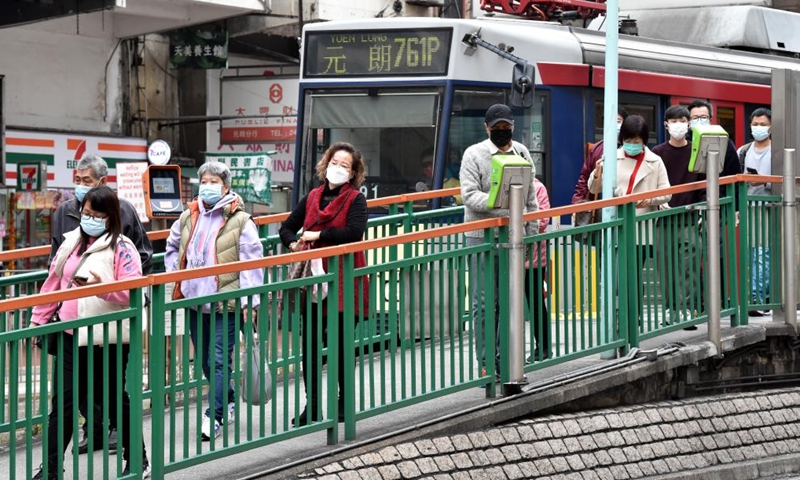
People wearing face masks walk on a street in Yuen Long, Hong Kong, south China, Feb. 9, 2022. Hong Kong registered 1,161 new cases of COVID-19 over the past 24 hours, according to data from the Center for Health Protection on Wednesday. Photo:Xinhua
Expanding testing capacity will sufficiently help the city find infection cases fast. But a major problem is that the residents flood to the hospital after testing positive, leading the medical system to get overloaded, Jin said.
The government should issue detailed guides to encourage residents to self-quarantine after testing positive and tell them how to do this. For big families with many people living in small places, they can cooperate with relatives to gather all the positive cases in the same house to prevent infections, Jin said.
He also suggested the government arrange a centralized quarantine place for the elderly who refuse to get vaccinated, which has the highest risk of infection.
The HKSAR government has implemented the strictest measures in two years to tackle the epidemic, including limiting the number of social gatherings to two people and issuing closure orders to public venues such as hair solons and religious buildings.
Jin said that current measures are already very strict, but the point is whether the residents can cooperate with the government.
If current measures are efficiently implemented, Zhuang Shilihe, a Guangzhou-based expert, said that the outbreak in Hong Kong can reach an inflection point by the end of February.
Some experts have suggested the city lock down for about two weeks, but experts reached by the Global Times do not think it is practical for the city as the regional government lacks the centralized system and coordinating capacity like mainland governments to ensure people's daily life during a lockdown.
